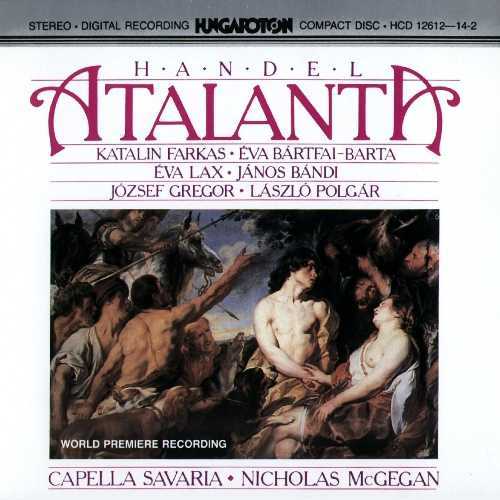
Performer: Capella Savaria, Katalin Farkas, Éva Bártfai-Bárta, Janos Bandi, Eva Lax, Josef Gregor, Leszlo Polgar
Conductor: Nicholas McGegan
Composer: George Frederick Handel
Audio CD
Number of Discs: 3 CD box set
Format: WavPack (image+cue)
Label: Hungaroton
Size: 593 MB
Recovery: +3%
Scan: yes
CD 01
01. Overture. [Allegro]
02. Overture. Allegro
03. Overture. Andante
04. Act 1. Arioso. Care seive, ombre beate
05. Act 1. Recitativo. Sempre ti lagni, oh Tirsi?
06. Act 1. Recitativo. Ecco Aminta!
07. Act 1. Aria. Lascia ch’io parta solo
08. Act 1. Recitativo. Ch’io rimanga con te?
09. Act 1. Aria. S’è tuo piacer, ch’io mora
10. Act 1. Recitativo. Perchè sospesa, oh figlia
11. Act 1. Aria. Impara, ingrata
12. Act 1. Recitativo. Ah! Che purtroppo adoro
13. Act 1. Aria. Come alla tortorella langue
14. Act 1. Arioso. Al varco, oh pastori!
15. Act 1. Recitativo. Oh Tirsi, e tu, che per fama
16. Act 1. Recitativo. Cerchi invano la morte
17. Act 1. Sinfonia
18. Act 1. Recitativo. Trattenetolo, oh fidi
19. Act 1. Aria. Riportai gloriosa palma
20. Act 1. Recitativo. Ah! che tu sei la fera
21. Act 1. Aria. Non sarà poco
CD 02
01. Act 2. Coro. Oggi rimbombano di feste
02. Act 2. Recitativo. Sei pur sola una volta
03. Act 2. Aria. Lassa! Ch’io t’ho perduta
04. Act 2. Recitativo. Amarilli? – Oh Dei! qui Tirsi?
05. Act 2. Duetto Amarilli? – Oh Dei, che vuoi?
06. Act 2. Recitativo. Ah! ch’io ancora l’intendo!
07. Act 2. Aria. Si, mel raccordero
08. Act 2. Recitativo. Il mio caro pastore
09. Act 2. Aria. Soffri in pace il tuo dolore
10. Act 2. Recitativo. E’non moro d’affano?
11. Act 2. Aria. Dì ad Irene, tiranna
12. Act 2. Recitativo. Ma giunge il caro mio
13. Act 2. Aria. M’allontano, sdegnose pupille
14. Act 2. Recitativo. Poveri affetti miei!
15. Act 2. Aria. Se nasce un rivoletto
CD 03
01. Act 3. Sinfonia
02. Act 3. Recitativo. E’dalla man di Tirsi
03. Act 3. Aria. Bench’io non sappia ancor
04. Act 3. Recitativo. Sono Irene? oppur sogno?
05. Act 3. Aria. Diedi il core ad altra Ninfa
06. Act 3. Recitativo. Ohimè! che pene!
07. Act 3. Aria. Ben’io sento l’ingrata
08. Act 3. Recitativo. Oh! del crudo mio
09. Act 3. Recitativo. Quanto più ti contemplo
10. Act 3. Arioso. Custodite, o dolci sogni
11. Act 3. Recitativo. Il vo’ morir…già corro
12. Act 3. Recitativo. Re Meleagro
13. Act 3. Recitativo. Oh forza del destin!
14. Act 3. Duetto. Caro / Cara
15. Act 3. Sinfonia
16. Act 3. Accompagnato. Del supremo Tonante
17. Act 3. Aria. Sol prova contenti
18. Act 3. Coro. Dalla stirpe degli Eroi
19. Act 3. Recitativo. Con voce giuliva
20. Act 3. Coro. Gridiam tutti
21. Act 3. Sinfonia Instrumentale
22. Act 3. Gavotta
23. Act 3. Coro. Viva la face, viva l’amor!
24. Act 3. Coro. Con voce giuliva
25. Act 3. Appendix. Recitativo. Oh forza del destin!
26. Act 3. Appendix. Aria. Tu solcasti il mare infido
mcgecan_handel_atalanta_cd_2.rar – 205.8 MB
mcgecan_handel_atalanta_cd_3.rar – 202.8 MB
Still alive and kicking
After a quarter century this remains the only complete recording of this opera in the catalog. Seems just a tiny bit strange to me, since this is far from the weakest work in Handel’s operatic oeuvre. It is a bit lacking in powerful drama, though–but that’s because of its background. “Atalanta” is a “licenza”–a musical work composed for a special occasion. In this instance the special occasion was the Prince of Wales’ impending wedding to Princess Augusta of Saxe-Gotha in 1736. When this became known Handel raced to throw together a celebratory work. With his usual speed he put together “Atalanta” in a little over three weeks (!). Naturally the occasion dictated the subject: love and fidelity. Patriotism and success in war, which provide so much of the fireworks in Handel’s other operas, are absent here. In this story, the betrothed, Prince Meleagro and Princess Atalanta, of two neighboring lands, for some reason spend their time disguised as shepherd and shepherdess in neighboring verdant fields. Mistaken identities lead to the usual hijinks, which are resolved at the end, whereupon the gods descend and bless the union. This standard silliness is the excuse for much beautiful music. The work opens with one of Handel’s most notable overtures, essentially a trumpet concerto reminiscent, at least to me, of the Water Music.
Handel wrote the male lead, Prince Meleagro, for a very young castrato working for him (Giacchino Conti. or Ghizziello) who had a very high register. As a consequence the male part spends a good bit of the show, oddly, above the female lead, Atalanta. A counter tenor just wouldn’t work in this role. In fact, a fascinating situation results: for Meleagro the conductor McGegan uses a soprano, Eva Bartfai-Barta, who, quite simply, has the lightest, highest soprano voice I’ve ever heard in baroque opera. This seems a necessity, given how high some of Meleagro’s runs go. But the duets between Meleagro and Atalanta (sung nicely by soprano Katalin Farkas) end up as truly memorable events. The rest of the singers, playing incidental shepherds and gods, are pleasant if not memorable. The Hungarian group Capella Savaria turns in an acceptable authentic performance, especially for one that’s twenty-five-plus years old now. The only tiny issue I have is…Nicholas McGegan himself. In the years since this recording McGegan has grown into one of our major, if not great, Handelians. And here, as in later on, McGegan can be….a bit of a plodder. It’s never enough to detract from the enjoyment of the work for me, yet I wonder if we’ll see a new recording of Atalanta soon with a bit more sparkle.
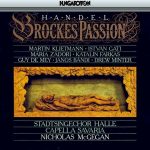
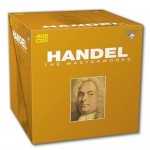
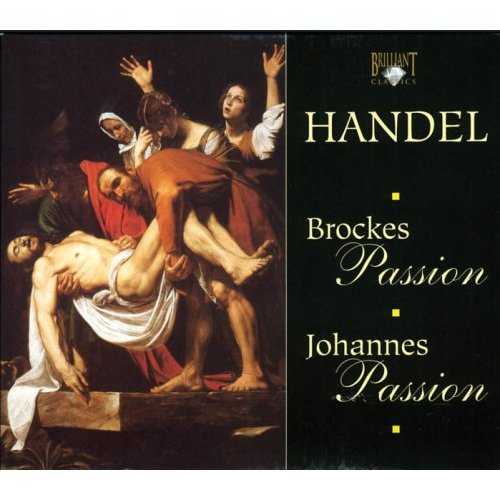
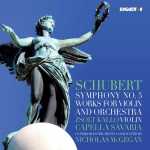
Handel is my favorite baroque composer and this opera is “new” to me. Thanks very much.
Thanks
Thank you
Wow! Superb share, Mr. Whatever. Thanks so much.
great, thank you!
many thanks